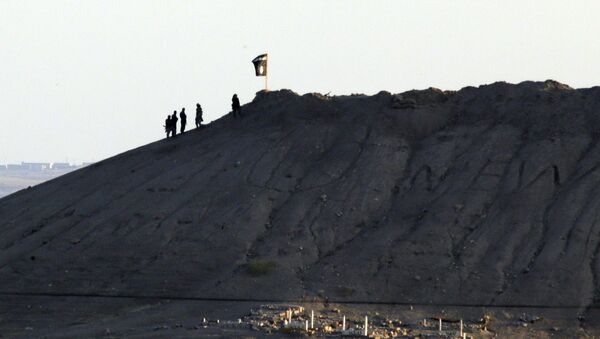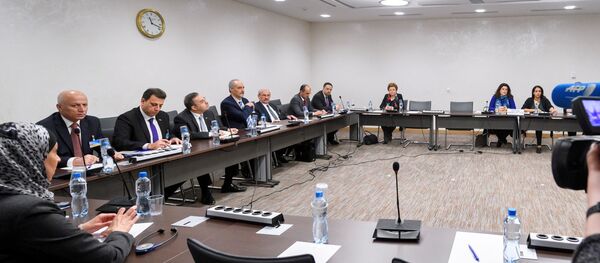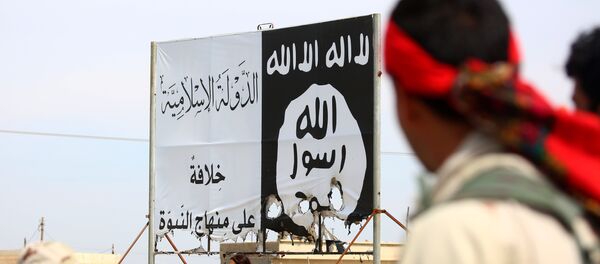On Sunday, US Ambassador to the UN Nikki Haley told CNN the United States believes regime change in Syria is going to happen. Last week, the United States launched cruise missiles at a Syrian airfield in response to an alleged chemical attack.
“Mostly likely, the Trump administration will try to dictate to Moscow [to] partition [Syria],” Jatras said.
Jatras suggested that Washington would attempt to create a splintered former Syria in which elements of Daesh would be preserved to maintain their rule of terror in key enclaves.
The proposed US solution could include “’ISIS [Daesh] lite’ Sunnistan in eastern Syria to block the mythical ‘Shi’ite Crescent’ to please the Saudis, Gulf States, Turks, and Israelis,” Jatras explained.
However, Moscow was unlikely to permit such a solution, Jatras pointed out.
Jatras expected that US policymakers would support revived extreme Islamist groups, even including al-Qaeda offshoots to maintain control of different regions of Syria.
“But the jihadist threat was never just IS [Daesh]. If I am correct regarding partition aims, the IS scarecrow will be destroyed and replaced by various ‘moderate’ head-chopper Salafist groups, including al-Qaeda, controlling various parts of Syria with US blessing,” Jatras stated.
Trump had bowed on Syria policy to pressure from “Deep State” hardliners determined to continue US policies of expansion in the Middle East, Jatras argued.
“I think it is all driven by domestic issues. Trump is under fire from the Deep State, MSM [the US mainstream media], [and has] surrounded himself with national security apparatchiki who oppose everything he said during the campaign. It appears he couldn’t beat them, so he joined them,” Jatras explained.
The “chances that Syrian forces did this are extremely small, in my opinion: The odds that terrorists did this as a false flag [operation] are very high. We have seen this movie before,” he said.
The most optimistic outcome would be if the US government tried to work out a new deal with Moscow, Jatras suggested.
However, if Trump failed to repair relations with Russia, there would be no hope of a revived Syrian peace process, Jatras warned.
“In short, we would be where we would have been if Hillary [Clinton] had won [the presidential election] in November,” he said.
That scenario could lead to another Cold War and to a deepening danger of a hot war between the superpowers, Jatras warned.
On Monday, US Central Command spokesperson Col. John Thomas said in a briefing that the United States was going to "let the situation settle" before commenting on Russia’s suspension of deconfliction lines in Syria. Moscow cut off US-Russian cooperation after the United States attacked a Syrian airfield last week.




